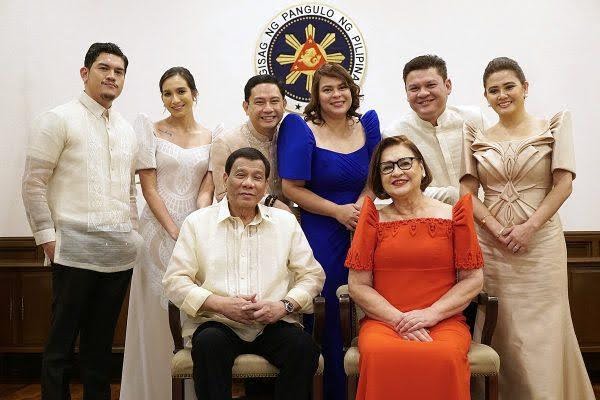Former president Rodrigo Duterte is not ready to permanently hang his political gloves.
Three years after stepping down from the pinnacle of power and already 80 years old, the country’s most colorful political personality is making a political comeback in the 2025 midterm elections even as charges of human rights violations hound him in the Philippines House of Representatives and in the International Criminal Court (ICC).
Duterte filed his certificate of Certificate of Candidacy (COC) on October 7 for Davao City mayor, a post that served as his launching pad for the presidency in 2016. He was first elected as local executive of Mindanao’s Queen City in 1988 and won six re-elections through 28 years.
The move came largely unexpected as Vice-president Sara Duterte-Carpio, his daughter, announced last June that the former president would be vying for a seat in the Philippine Senate with sons Paolo Duterte, an incumbent congressman, and Sebastian Duterte, currently the mayor of Davao City. No member of the family ended up running for the Upper House.
To give way to the return of his father, Mayor Sebastian Duterte would instead run for the vice-mayoralty seat in Davao City. Congressman Paolo Duterte, for his part, is running for re-election as representative of Davao City’s First District.
Apart from the sitting vice-president and the three Dutertes, two more members of the clan are vying for elective positions next year. They are the sons of Rep. Paolo Duterte: Omar, who is running for the congressional seat representing Davao City Second District; and Rigo, a candidate for the City Council.
Adding to the six Dutertes in politics is January Duterte, wife of Paolo who is a member of the present City Council of Davao as representative of barangay captains. All the seven Dutertes are identified with a new party-list group that would try to win three seats of its own in the House of Representatives.
Former president Duterte repeatedly warded off criticisms against political dynasty. Having family members in politics is “not bad” and would remain unless the Constitution and culture are changed, he said.
There have been sporadic moves in Congress to operationalize the anti-political dynasty provision in the 1987 Philippine Constitution but they hardly progressed since the legislature is dominated by several political families.
“The provision in the Constitution about political dynasty, it will never push through no matter how hard they try,” the elder Duterte said during one speech when he was still president.
Duterte tried to justify his mayoral comeback attempt after recently filing his COC for the May 12 elections. He said his hardline approach against illegal drugs should be continued.
Duterte’s controversial past drug campaigns are now the subjects of separate investigations by a quad committee in the House of Representatives as well as in the ICC. The Senate also indicated that it could open its own probe of the drug wars that have claimed thousands of lives during the previous Duterte administrations.
Standing in the way of Duterte’s comeback is lawyer Karlo Nograles who resigned as chairman of the Civil Service Commission (CSC) to run for mayor.
Nograles, a former congressman, was a member of Duterte’s cabinet. He said he is challenging the mayoral bid of his former boss to give voters a choice on who should lead Davao City that is now plagued by severe flooding, traffic congestion and a host of local problems.
Lawyer Margarita Nograles, sister of Karlo, is leaving her seat as Congress representative of Pwersa ng Bayaning Pillipino (PBA) party-list group to challenge the re-election bid of Davao City First District Rep. Paolo Duterte.
The Dutertes and the Nograleses have a history of intense political rivalry in Davao City dating back to 1992 although the two families had episodes of political alliances between 1987 to 1991, 2004 to 2008, and 2016 to 2022.

































